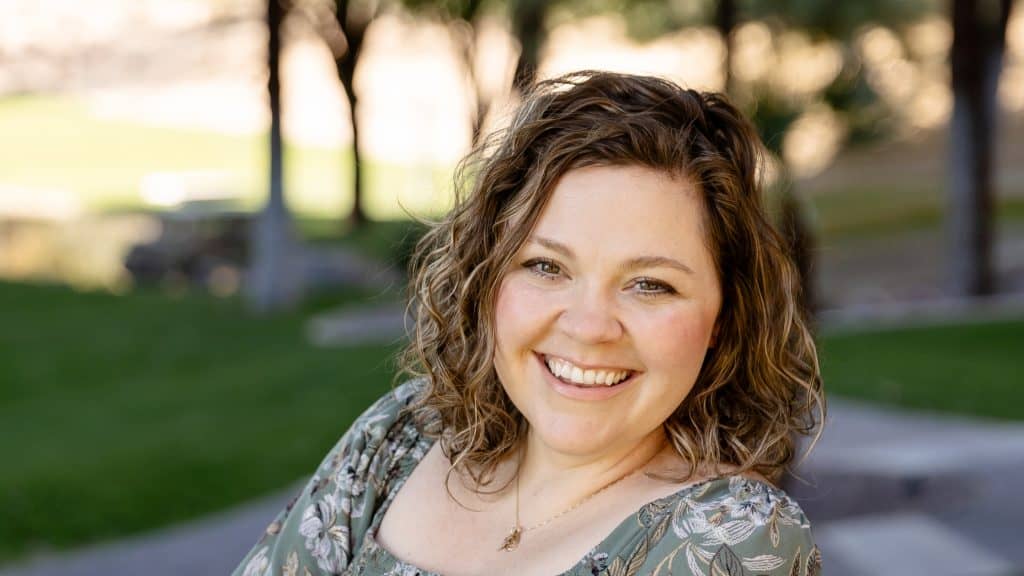As a Christian counselor working with addictions of various kinds my number one priority when working with clients is to point them to Jesus Christ as their deliverer. I will also say, by way of context, that I believe all addictions and obsessions ultimately result from our fallen nature, inherited from Adam, and redeemable by the Second Adam (Jesus–see 1 Corinthians 15:45).
Having said that, however, I have also come to respect the intricacy of God’s design. Without minimizing the sin-effects of these kinds of problems I’ve learned that the solution is not as simple as “take two Bible verses and call me in the morning.” So, when I saw this news report come over the wire the other day I was curious: “Internet addiction—now seen at the molecular level.”
Let me tell you a little about the research and then give you some of my perspective on what this means for those of us affected by it.
The study was conducted at the University of Bonn and the Central Institute of Mental Health in Manheim, Germany, and was first published in the Journal of Addiction Medicine. It involved nearly 850 men and women and extended over twelve months. The result was that 132 of them exhibited “problematic behavior in how they handle the online medium; all their thoughts revolve around the Internet during the day, and they feel their well-being is severely impacted if they have to go without it” (Montag, 2012). Sound like anyone you know?
Now, here’s the interesting thing. They also conducted genetic testing on the group and found that those who exhibited the addictive behavior had a mutation on a particular gene: CHRNA4. This happens to be the same variation that appears on subjects who have a proven addiction to nicotine. Christian Montag, the lead researcher, concluded, “Within the group of subjects exhibiting problematic Internet behavior this variant occurs more frequently–in particular, in women.” Undetermined at this point is which came first: the addiction or the mutation (I would argue it’s the addiction). But in any case, the problem goes much deeper than just behavior.
I won’t go into any more technical details but I think it points once again to two things we all know: our brains and motivations are complex, particularly when it comes to addictive behaviors. Secondly, because of this complexity, the strategies for freedom and restoration will have to be robust.
In my clients there is often an overwhelming feeling of helplessness in the presence of an Internet addiction. Those who aren’t similarly afflicted—spouses, friends, pastors—can become impatient and frustrated when progress is slow and inconsistent. An awareness of the chemical and genetic components of behavior is helpful. We can better appreciate how daunting the task of recovery and restoration is.
However, these kinds of research must never be misused. They aren’t an excuse for inaction or irresponsibility! Nor must they ever be used to take our eye off the real solution. As a Christian counselor, they point me to a passage of Scripture familiar to many recovering addicts.
Although I want to do good, evil is right there with me. For in my inner being I delight in God’s law; but I see another law at work in me, waging war against the law of my mind and making me a prisoner of the law of sin at work within me. What a wretched man I am! Who will rescue me from this body that is subject to death? (Romans 7:21-24, NIV)
I don’t know what Paul’s addiction was, but he had one too. He didn’t use the word “addiction” of course, but he did talk about “another law at work in me.” That’s a very apt description of addiction. It’s a kind of law—a law of sin and idolatry. Our hearts—and our very “flesh” is predisposed to going the wrong way. Paul knew how stubborn his condition was. Imagine if he knew about the genetic mutations of addictions!
Like Paul we have found ourselves throwing our hands up in helplessness: Who will rescue us from this body subject to death?”
You probably know Paul didn’t end it there: “Thanks be to God, who delivers me through Jesus Christ our Lord!” (7:25).
Genetic mutations and chemical imbalances notwithstanding, Paul’s solution to his helpless condition is ours also: Jesus Christ our Lord. Because of the cognitive, affective and behavioral components of addictions, there are a variety of treatment strategies that can have limited effectiveness. I use many of them in my work. However, I maintain that only when those strategies are enabled and directed toward the transcendent reality of “deliverance” through “Jesus Christ our Lord” can we really hope for victory. And only when our hands go up in frustration—empty of all but faith—can we give thanks to God for that victory.







Mark,
A word of caution. Be prayerfully cautious about who you reveal your struggles to. Some may not only be unhelpfull, but they may even hinder your recovery.
Many thanks Luke. I will try to make the needed connections according to the biblical personality prescriptions you have stipulated. Kindly allow me to mail you on my progress on that. Your email please?
I’ll send it to you.
Well maybe I haven’t tried that approach yet. Didn’t quite know if sharing such during fellowship would leave people gossiping about me afterwards. I see people share problems but it always seems to be shallow problems that they all share; its like the most of us are good at sharing anything but what is really wrong with us. These things have subconsciously made me to put away the idea of asking brethren to pray for me during our cell meetings. But like you have advised…maybe its the only way out.
Galatians 6:1 offers great hope to sinners like you and me: “Brothers, if anyone is caught in any transgression, you who are spiritual should restore him in a spirit of gentleness.” For those caught in the grip of sin, we need those whom Paul called the “spiritual” to take on the ministry of restoration. This term, “restore” (Gr. katartizo), was a medical term for setting a broken bone. In our sinful, fractured selves, the work of a spiritual person is to set right broken thoughts and beliefs with the tenderness and wisdom of a spiritual doctor.
The same word translated “restore” is the root for the term used in in Ephesians 4, “And [Christ] gave the apostles, the prophets, the evangelists, the pastors and teachers, to equip the saints for the work of ministry, for building up the body of Christ…” (Ephesians 4:11-12). Christ has given His church Christian leaders and mentors as gifts, the true spiritual elders and shepherd of the church, to restore the broken, and thus equip them to live as the body of Christ.
The “spiritual” mentioned in Galatians 6:1 are those who have a track record of walking in the Spirit (Galatians 5:25), who have lasting fruit of Christlike character (5:22-23), who have eagerly waited on the Lord for righteousness to bloom in their life and have found Him faithful (5:5). They are spiritual leaders who hear from God regularly, obey His voice, and effectively model intimacy with God. They are the true elders and leaders who are experienced in healing the hurts caused by sin (James 5:13-16). They may not hold the status of “elder” at a church (many do not), but they are a true mentor in the faith.
I firmly believe this is, for many men, the missing link for their spiritual restoration.
Thanks for understanding Luke. While I understand that God has a purpose thru every storm. I have been in this for 8 to 10 years and hate to keep repeating the same thing and expecting different results. Really wish someone could talk me outta this. I am really in need of this change before I get married and wreck someone else’s life
I get what you’re saying, yes. What sort of counsel have your sought out about this? How have you exposed your problem to spiritual leaders in the church?
I wish some one could reach right out and just move me from addicted to free from porn
Mark – I know. It is so frustrating, isn’t it. But what I’ve learned is that God actually has a purpose in the process. It’s like the children of Israel: there was a purpose to the wilderness before the Promised Land. This is amazing to me. We worship a God who, despite the fact that our sin is offensive to Him, and even though He has the power to deliver us from sin immediately, gently leads his people through the wilderness of sin, changing us gradually, so that we might learn what it is to trust in Him.